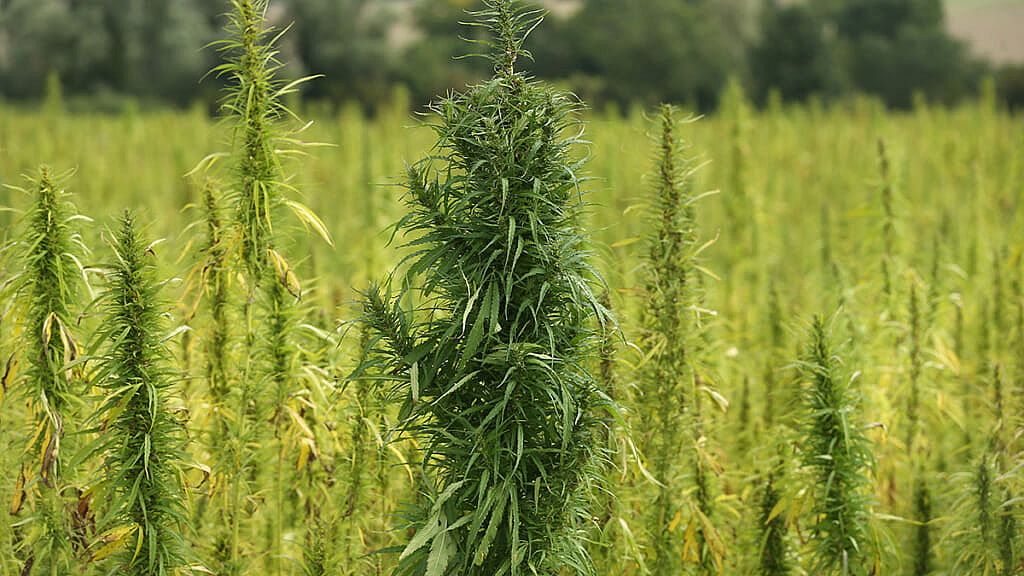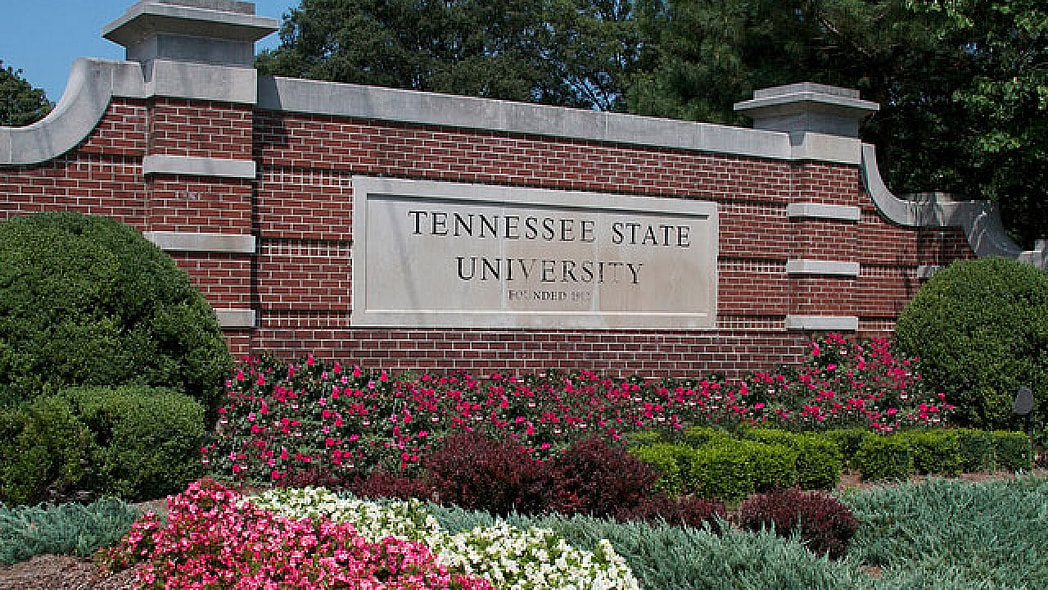We didn’t expect to see a hub for agricultural learning struggling to recover as we drove through the city of Nashville, but somehow, that’s what we ended up unearthing.
Nashville, like other American cities, was hit hard this year with a tornado in March that plummeted down Jefferson St., a vital artery linking historical Nashville to what has become new Nashville.
Tennessee State University (TSU), an HBCU founded in 1912, and many neighboring small businesses felt the brunt of the havoc. Twenty-five Nashvillians lost their lives to the extreme winds. Buildings had their roofs ripped off, and there were ruins where TSU classrooms once stood. The wreckage was so bad that Governor Bill Lee even paid the school a visit to examine the damage.
“The entire agricultural farm [on the main campus] was basically wiped out to the ground. That includes about eight greenhouses, eight cookhouses, the farm shop, the educational building … all of those were wiped out,” said Professor Fitzroy Bullock of the TSU Department of Agriculture and Environmental Science.
Since TSU has one of the nation’s leading hemp research programs. Staff and students alike spend their time creating products that take advantage of what hemp has to offer to the fullest extent. Working under the mandated FDA parameters, TSU’s graduate students are making exciting observations about how the plant is processed.

Thanks to the university’s hemp research grant, these students are able to analyze the plant from seed to shelf. The students also explore the economics of hemp cultivation. Like many of the campus facilities surrounding it, however, the damages TSU’s hemp lab sustained were significant.
Positioned in a brilliant and progressive part of the state, a group of other specialized colleges surrounds TSU. Other universities in Tennessee like Meharry Medical College, Fisk University and American Baptist College also cater to the education of Black students.
TSU, like Florida A&M University in Tallahassee, Florida and Southern University and A&M College in Baton Rouge, Louisiana, is an agriculture-focused institution. On the main campus, there’s a 52,000 square feet grow house and plant laboratory that complements the Otis L. Floyd Nursery Research Center and over 600 acres of dedicated farmland and greenhouse field research space.
Read More: Streaming service Twitch targets HBCUs to increase minority participation in gaming
“Plant scientists,” as students are called by their professors, get graded on their analysis of the growth of seeds and plants. At the institution, a team of these scientists develops hemp production practices for the entire state. The research projects include developing hemp nutritional products for human consumption and studying the economic viability of hemp production.
On a tour of the damaged campus, you can see many uprooted beds of plants and greenhouses. Regardless, TSU’s plant scientists are committed to continuing their research as best they can.
“We are first and foremost a research institution and always interested in shortening that knowledge gap,” said Dr. Ying Wu, associate professor Food and Animal Science and lead researcher of the hemp grant funded by Eufloria Medical of Tennessee, a bio-science company dedicated to naturally produced hemp.
“We have two students, one full time working on this grant, one with the seed and the other with the plant. We analyze how to grow it and how it will work when being processed from seed to fiber (used for oils and tinctures). There are too many uncertainties.”
An innovative program extension of the grant is the New Farmer academy class. For the first seven months of the program, farmers met every third Monday of the month to learn how to grow profitable plants. The meetings took place in TSU’s Pavilion of Agricultural Research. Not only that, but the college goes steps further to ensure that local residents get a piece of the green pie. The institution is earnestly investing in being a leader in cannabis research and analytical work.

“Hemp is being grown just about everywhere in the country, but the growers don’t really have foundational research,” said Professor Bullock.“So what we’re doing is taking a leadership role in trying to establish a base for research.”
Just months after TSU’s campus and the community had to face the disruption of a tornado, a worldwide pandemic hit. On March 13, students were officially permitted to leave campus and finish their semester online. In a statement delivered shortly after, the university announced that employees would also be transitioning to remote work until further notice. Despite all of these obstacles, TSU is planning on moving forward with reopening in the fall, in keeping with the Tennessee State Department of Health’s guidelines.
“This pandemic is unlike any challenge we have ever faced,” TSU President Glenda Glover said in a letter to students and faculty. Students who live on-campus will be required to stay in their residence halls for 14 days after they arrive. For that reason, the first two weeks of the semester will be held remotely. After those initial two weeks, students will be given the option of online or in-person instruction.
TSU’s Department of Agriculture and Environmental Science will continue the hemp research program in the fall as well. Some hope this research will revolutionize how the cannabis plant is manufactured and distributed to the world.
“We’ve taken the leadership in Tennessee from a [hemp] research standpoint. There were about 400 folks registered [in the program]. In 2019, it jumped to about 3,400,” Professor Bullock explained.
The rapid growth experienced by the department is a testament to the work they’re doing. Although rebuilding efforts after the tornado were slowed as a result of the pandemic, students and faculty are eager to return to campus to continue carrying out their research.
Have you subscribed to theGrio’s podcast “Dear Culture”? Download our newest episodes now!


